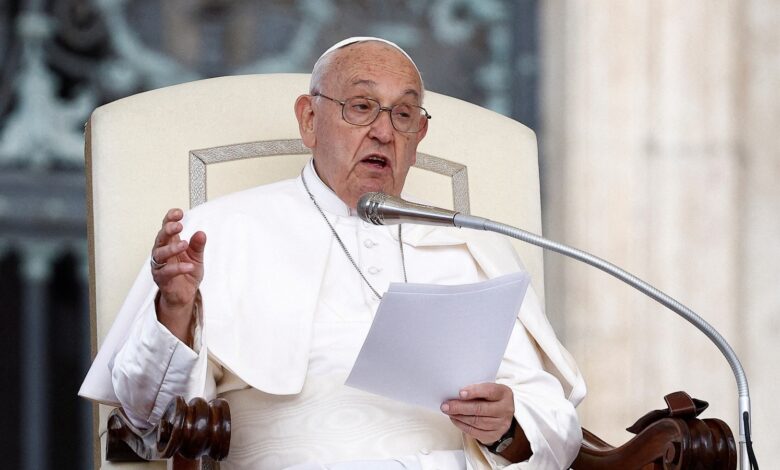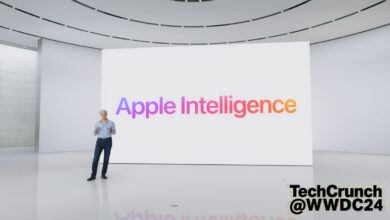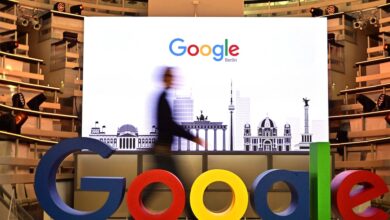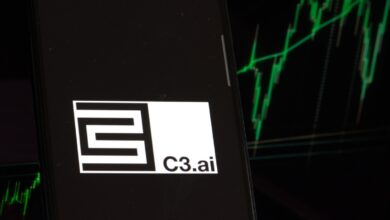First Pope at G7 summit, Francis to voice concerns about generative AI | World News

Pope Francis is set to address the G7 summit in Italy, a first for a pope, to discuss his concerns about the rise of artificial intelligence.
The Argentine pope himself has experience with the power of AI, as a deepfake photo of him with a white puffer jacket went viral last year.
Francis will be joining the ranks of several countries and global bodies calling for stronger regulations for AI, after the boom of generative technologies, starting with OpenAI’s chat-bot ChatGPT. Generative AI can create text, video and audio on the basis of prompts by people from an existing database of knowledge.
Read more: PM Modi leaves for G7 summit, no bilateral meet with Justin Trudeau planned
The pope has previously spoken out on the matter in his annual peace message to call for international laws to ensure AI is developed and used ethnically.
He argued the lack of human values like compassion, mercy, morality and forgiveness, made AI dangerous without checks in place.
Italian Premier Giorgia Meloni invited Francis and announced his participation, banking on his celebrity status and moral authority to promote caution around AI as well as push for peace and social justice.
Read more: United front at G7 summit against China’s economic and military actions
According to AFP, John Kirton, a political scientist at the University of Toronto who directs the G7 Research Group think tank said, “The pope is, well, a very special kind of a celebrity.”
Recalling the last summit that had this kind of star power, Kirton pointed to the 2005 meeting in Gleneagles, Scotland where members decided to wipe out 40 billion dollars of debts owed by 18 of the world’s poorest countries to the World Bank and the International Monetary Fund.
“Gleneagles actually hit a home run and for some it’s one of the most successful summits,” Kirton said, according to AFP.
Before that summit, a Live8 concert was held in London with Sting, The Who and a reformed Pink Floyd, which drew over a million people in solidarity with those suffering from hunger and poverty in Africa.
Francis is also expected to use his status and authority to highlight the dual issues of restrictions round AI and the threats it poses to peace in society.
Generative AI technology has excited people with its ability to produce human-like responses and also incited fear globally.
Worries about AI range from immediate concerns like discrimination based on algorithmic bias to its potential to aid in the creation of bio-weapons and spreading disinformation.
Francis raised these concerns and others, while talking about peace in his annual message. He said AI must keep foremost concerns about guaranteeing fundamental human rights, promoting peace and guarding against disinformation, discrimination and distortion.
The pope will be speaking about AI oversight to the countries which are already forming their own regulatory networks.
Japan has launched its Hiroshima AI process to create international guiding principles and a code of conduct for AI developers. Prime Minister Fumio Kishida also revealed a framework for global regulation of generative AI.
The EU will implement its wide-ranging AI Act over the next two years, which could act as a global model. The act restricts any AI product or service offered in the EU, based on the level of risk they pose.
President Joe Biden issued an executive order on AI safeguards and some US states like California and Colorado have had mixed results in introducing their own bills on AI.
Antitrust bodies in the G7 countries have been critically analysing the big AI companies including Microsoft, Amazon and OpenAI to see if their market dominance is preventing competition.
Britain initiated a global dialogue on reining in AI’ in a summit last year, followed by a meeting in Seoul where companies vowed to develop AI technology safely.
France will host a meeting to the same effect next year and the UN has also provided its first resolution on AI.
Apart from AI, Francis is scheduled to meet Ukraine President Volodymyr Zelenskyy, as well as invited leaders from Algeria, Brazil, India, Kenya, Turkey. He will also meet with G7 members, including Biden, Canadian Prime Minister Justin Trudeau and French President Emmanuel Macron.



